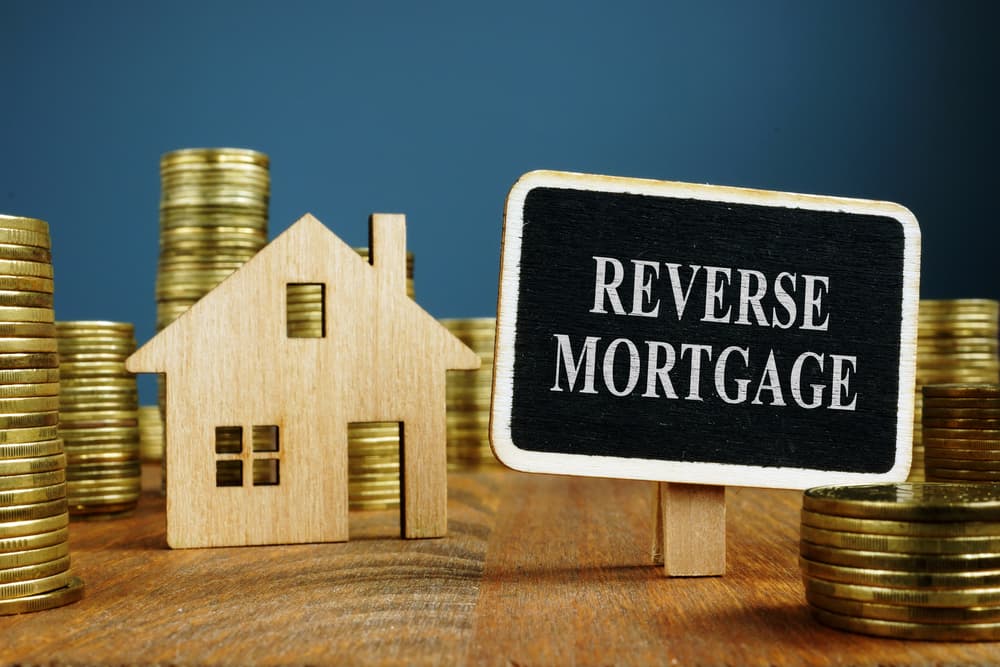How Useful Is Reverse Mortgage—Know The Pros And Cons
A reverse mortgage is a loan, typically obtained by cash-strapped older homeowners, based on the property’s current assumed market value, which they receive in instalments.
A reverse mortgage is a loan, typically obtained by cash-strapped older homeowners, based on the property’s current assumed market value, which they receive in instalments.

Reverse Mortgage Loan
Only 11 per cent of senior citizens in the US were ready to explore the reverse mortgage option to meet their cash requirements, according to a study by Carewell, a care-supply marketplace.
The study covered 1,025 people aged over 55 to understand the needs of older people. It revealed some interesting facts regarding their fears after retirement, like inadequate savings, high medical costs, outliving savings, and becoming a financial burden on loved ones, among others.
Advertisement
Asked how they would manage if they can’t afford senior care, 57 per cent said they will seek government aid, 43 per cent to rely on friends and family, and 41 per cent and 40 per cent would consider selling their house and moving to a more affordable area, respectively. Only 11 per cent said that they would explore the reverse mortgage option to meet their financial needs.
In India, the reverse mortgage was introduced in 2007, keeping in mind that cash-strapped senior citizens with a house could use this option in case they needed cash. However, this idea has not picked up much due to a lack of awareness and hesitancy on their part to put the property on the mortgage due to their emotional connection with the house and financial help from children.
Advertisement
Let’s explore who can use this loan option and what are the implications involved.
A reverse mortgage is a loan where the borrower mortgages the house and receives periodic payments. It may be an option for cash-strapped older people with no source of income.
Who Can Use This Option?
A person over 60 is eligible to take a reverse mortgage loan. The borrower must own the property and use it as a primary residence, not for renting or commercial purposes. The maximum loan period is 20 years.
Let us look at the benefits of the reverse mortgage loan (RML).
RML can support your cash needs from the property, which is illiquid. They don’t have to repay the loan while living in the property. However, they will need to refund the amount if they want to move away permanently but still want to own the property or sell the house. The good part is that even if the maximum loan tenure is 20 years, they can continue living in the house after the term is completed.
Another benefit is that the periodic payments from the lender can be used for any purpose, including regular cash needs. Also, the property ownership does not go away permanently. They can get it back after paying the loan amount. After the borrower dies, the legal heirs can retain the property by repaying the loan.
While we have discussed the benefits, it is vital to learn about the drawbacks, too.
A reverse mortgage is a unique option and should be used as per one’s circumstances. If there is a possibility to have a regular income source, one can avoid reverse mortgages, but this option may work in case of no financial security and no source of cash flow.
Advertisement
Retirement years are righty called the golden years, when one may spend some of the best years of one's life. Therefore, it is vital to plan properly for retirement.
You need to plan many things when you retire, but one of the important aspects that you must not miss out on is related to securing the financial well-being of your spouse.
Some people get trapped into thinking that there is a minimum pension amount that they need to work for, which is not correct, says Krishnan.
Get all the latest stories delivered to your inbox
Advertisement
Get all the latest stories delivered to your inbox